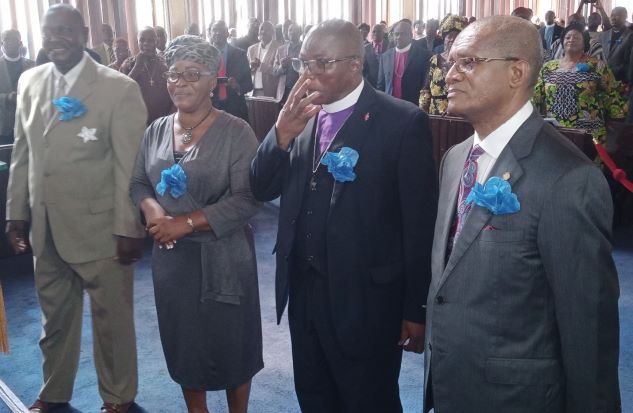The Liberia Council of Churches (LCC) emphasized that corruption is a significant obstacle to national development in the country.
They highlighted that history has demonstrated that no country can progress without addressing corruption. The ecumenical group stated on Monday that Liberia has not been able to realize its full potential due to dishonest practices.
They called for a revamp and reactivation of various agencies, including the Liberia Anti-Corruption Commission and other institutions responsible for combating corruption, to ensure optimal performance. The LCC stressed that corruption has been a long-standing issue hindering the nation’s progress and urged collective action to combat this obstacle to prevent stalling the nation’s development.
“There can be no doubt that corruption is a huge burden on the neck of Liberia. And, history shows that it is only nations that successfully shake off this massive load that can march to a dawn of real growth and development. That is what we need to do to transit from being merely potentially great to a higher level of genuine greatness”, the council president said.
Call for audit of Government $22Million Road project
The Liberia Council of Churches (LCC) has expressed concerns about reports of corruption involving $22 million meant for rehabilitating roads nationwide. President Joseph Boakai had made road reconditioning a priority within his first one hundred days to ensure improved accessibility and to stimulate economic activities.
The LCC, represented by its President Rev. Dr. Samuel B. Reeves, Jr., has highlighted that three ministers of the ruling Unity Party, including the Director of the Public Procurement and Concession Commission (PPCC), have been implicated in grossly violating the country’s Public Procurement and Concession Laws. They awarded separate road contracts totaling $22.4 million to various companies operating in the country without following a competitive bidding process.
There are rumors of corruption and kickbacks in the awarding of contracts, especially when the contract awarders knew that some of the contractors had previously worked on the same contracts. In response, the LCC released a statement on Monday stating that the amount allocated to maintain Latrice road (Duster road) is excessively high, and requested the President, through the General Auditing Commission, to conduct an audit of this expenditure.
The LCC stated that the $22 million spent on dumping red dirt, under the guise of rehabilitating and constructing roads, is highly suspicious and condemnable. This is especially concerning because the allocated funds were not used for paving the roads.
“Violating Liberia’s procurement law for Yellow Machines”
The government of Joseph Nyuma Boakai has been accused of blatantly violating the country’s procurement law by arranging to bring in 285 pieces of earthmoving equipment for road rehabilitation across the country. The news of the earthmoving equipment first came to light in Liberia during a mini cabinet retreat in May 2024, when the Minister of state for Presidential Affairs Mamaka Bility made a presentation about the machines, which were generated by artificial intelligence.
“This is a good idea that should be lauded by all well-meaning Liberians. However, we cannot brush aside our laws in the name of development,” the LCC statement said.
LCC lauds Boakai for War Crimes Court
In considering the President’s decision to establish the War and Economic Crimes Court, the LCC describes the move as a “bold step” on the part of President Boakai. They believe it will provide the needed support to ensure that the court is formally established.
“This issue has been lingering in our body politics where government after government have played politics with the people, but today we are witnessing the birth of a new day in our human life as Liberians.”
The Council of Churches believes that establishing these courts would give both the victims and perpetrators the chance to present their case and prove their innocence.
“We are calling on the international community to collaborate with the Government of Liberia to ensure the establishment of these influential bodies, which will act as a deterrent to those who think that violence is the only solution to their grievances”, the statement concluded.
The Liberian Council of Churches is an ecumenical Christian organization in Liberia. It was founded in 1982 and is a member of the World Council of Churches.






















